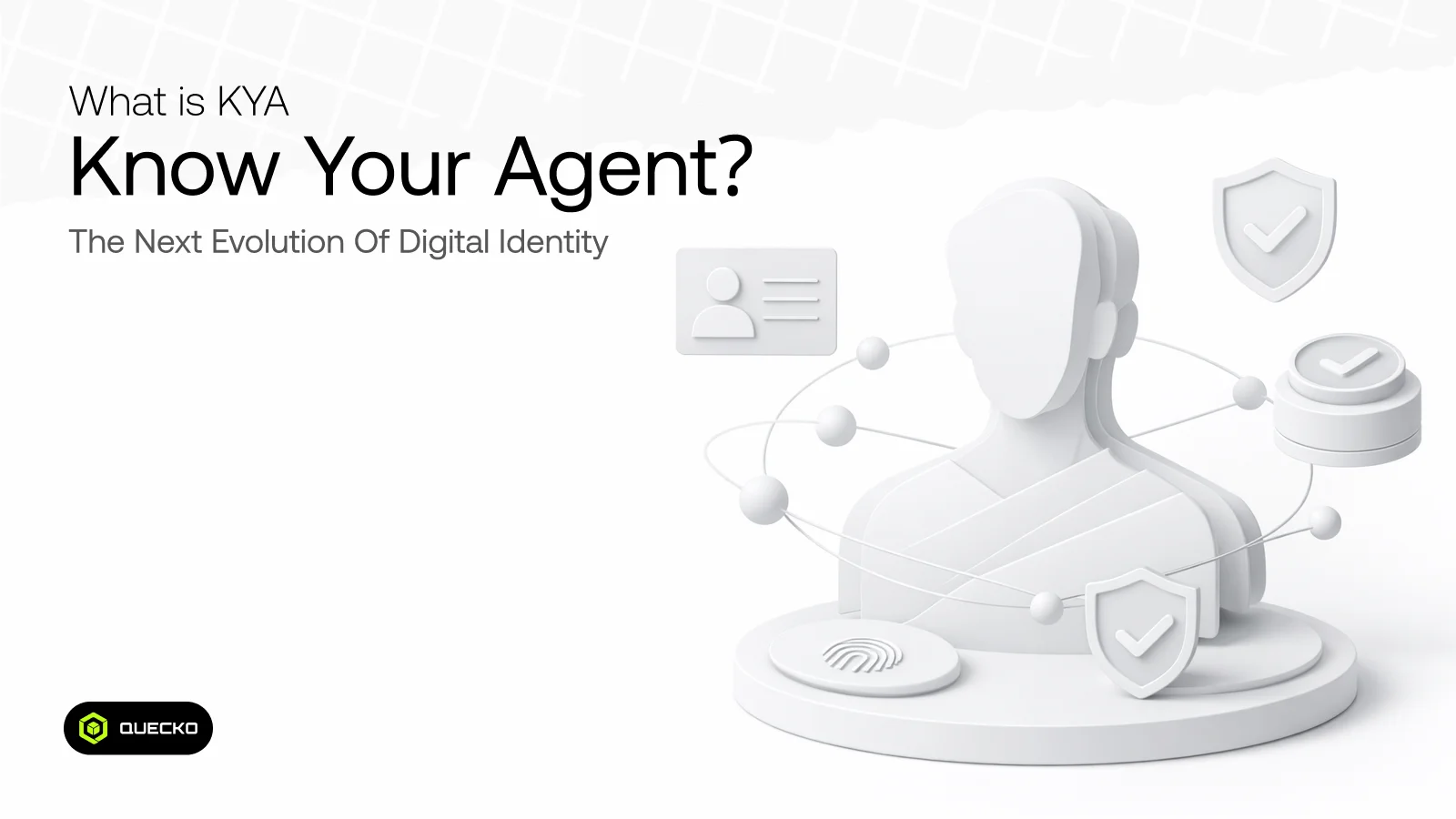How AI & Smart Contracts Create Personalized User Experiences
Discover how AI and smart contracts revolutionize user experiences by enabling personalized, secure, and automated interactions. Learn how these technologies work together to tailor services and streamline digital engagement.

In today’s digital landscape, personalization is no longer a luxury; it’s a necessity. Consumers expect tailored experiences that cater to their preferences, behaviors, and needs. Two transformative technologies, i.e., Artificial Intelligence (AI) and smart contracts, are revolutionizing how businesses deliver this personalized touch. Let’s explore how these innovations work together to create more engaging, secure, and customized user experiences.
AI-driven “user experience” enhancements enable businesses to analyze consumer data more effectively, providing tailored recommendations and interactions. “Machine learning” algorithms empower these systems to adapt continuously, ensuring that digital assets are personalized and relevant.
“Blockchain technology” plays a crucial role in securing transactions, enabling transparent and tamper-proof records, which is essential for “fraud detection” and maintaining trust. Additionally, blockchain can streamline the “Supply Chain” processes by providing real-time tracking and verification of goods and digital assets.
Together, AI and blockchain technology are transforming industries, offering more secure, efficient, and personalized solutions across various sectors.
The Power of Artificial Intelligence in Personalization
Artificial Intelligence (AI) has revolutionized the way businesses and organizations tailor experiences, products, and services to individual users. Its capacity to analyze vast amounts of data, recognize patterns through machine learning and deep learning, and adapt responses in real-time has elevated personalization from a mere marketing buzzword to a fundamental component of modern digital interactions.
AI also plays a crucial role in fraud detection, enhancing data protection and ensuring regulatory compliance. In the realm of Supply Chain management, AI-powered AI Agents optimize logistics and inventory. As a result, these advancements significantly improve user satisfaction and foster trust in digital platforms, driven by the synergy of blockchain technology for secure transactions and AI-driven insights.
Understanding Personalization Through AI
At its core, AI-driven personalization involves leveraging machine learning algorithms, natural language processing, deep learning, AI agents, computer vision, and data analytics to create customized experiences. By continuously learning from user behaviors, preferences, and interactions, AI systems can deliver content, recommendations, and services that resonate deeply with each individual, enhancing user satisfaction.
Additionally, these systems incorporate risk management strategies, ensure data protection and data integrity, and are increasingly integrated into decentralized applications and supply chain management processes. Reinforcement learning further refines personalization, enabling AI to adapt dynamically to evolving user needs and preferences. Moreover, threat detection is integral to maintaining system security and safeguarding user data within these AI-driven frameworks.
Key Areas Where AI Enhances Personalization
AI significantly enhances personalization across various key areas by analyzing vast amounts of data to deliver tailored experiences. In digital marketing, AI customizes content and advertisements based on individual preferences and browsing behaviors, increasing engagement and conversion rates. In e-commerce, AI-driven recommendation systems suggest products that align with a customer’s past purchases and browsing history, fostering a more satisfying shopping experience. In healthcare, AI personalizes treatment plans by considering a patient’s unique medical history and genetic information, leading to more effective interventions. Additionally, in entertainment, AI curates personalized playlists and content recommendations, ensuring users receive entertainment that matches their tastes. Overall, AI’s ability to interpret and predict individual preferences enables a highly personalized approach in multiple sectors, enhancing user satisfaction and loyalty.
- E-commerce and Retail: AI, leveraging machine learning and computer vision, analyzes browsing history, purchase patterns, and customer feedback to recommend products uniquely suited to each shopper. For example, online retailers like Amazon utilize AI to suggest items based on previous searches and purchases, increasing the likelihood of conversion and enhancing user satisfaction. These systems rely on robust data processing to ensure data integrity and deliver accurate recommendations.
- Content Delivery and Media: Streaming platforms such as Netflix and Spotify employ AI, including reinforcement learning, to curate personalized playlists and viewing suggestions. These platforms analyze viewing habits, ratings, and time spent to refine their recommendations continuously, keeping users engaged and reducing churn.
- Digital Marketing: AI enables targeted advertising by understanding user demographics, online behavior, and interests, often through decentralized applications that ensure data integrity and privacy. Marketers can create highly relevant campaigns that speak directly to individual needs, thereby improving user satisfaction, engagement rates, and ROI.
- Healthcare: AI personalizes treatment plans by analyzing patient data, genetics, and lifestyle factors, utilizing machine learning models to improve risk management and treatment efficacy. This approach leads to more effective interventions and better patient outcomes.
- Customer Service: AI-powered chatbots and virtual assistants, built with AI agents, provide tailored support by understanding user queries in context. They recognize individual preferences and history to offer more accurate, efficient assistance, contributing to higher user satisfaction.
Benefits of AI-Driven Personalization
- Enhanced User Experience: Personalized interactions enabled by AI agents and data analytics make users feel understood and valued, fostering loyalty and trust. Incorporating explainable AI and adhering to privacy regulations ensures transparency and user confidence.
- Increased Engagement and Conversion: Relevant recommendations and content, driven by reinforcement learning and AI agents, lead to higher click-through rates and sales. Loyalty programs further incentivize continued interaction and brand loyalty.
- Operational Efficiency: AI automates complex data analysis and addresses security vulnerabilities, enabling real-time personalization at scale without proportional increases in resources. Ethical considerations guide responsible AI deployment.
- Competitive Advantage: Organizations that effectively utilize AI personalization, decentralized applications, and explainable AI differentiate themselves in crowded markets, while maintaining compliance with privacy regulations and managing security vulnerabilities.
Challenges and Ethical Considerations
While AI offers immense potential, especially through AI Agents, data analytics, and e-commerce platforms, it also raises concerns related to privacy, data collection, spending patterns, and ethical considerations. Ensuring transparency, developing explainable AI, obtaining user consent, and safeguarding personal data are critical to maintaining trust within the financial ecosystem. Additionally, avoiding biases in algorithms is essential to provide fair and equitable personalization, ultimately improving conversion rates and user experience.
Future Outlook
As AI technology continues to evolve, personalization will become even more sophisticated, intuitive, and seamless. Future developments may include hyper-personalized experiences driven by contextual awareness, emotion recognition, and predictive analytics, ultimately transforming how individuals interact with digital systems such as AI Agents.
The integration of data collection and data analytics will enable more precise insights, enhancing features like Maple Flow, Maple Learn, and the Maple Calculator App for users across various fields, including Engineering calculations & documentation.
In e-commerce platforms, AI-driven personalization can significantly improve conversion rates by delivering tailored recommendations and experiences. However, as organizations harness this power, ethical considerations surrounding data collection and privacy must be prioritized to ensure responsible use of AI. AI agents will play a crucial role in automating and optimizing these processes, facilitating more engaging interactions.
In short, the power of AI in personalization lies in its ability to analyze complex data, learn continuously, and adapt in real-time, creating highly relevant and engaging experiences that benefit both consumers and businesses.
Smart Contracts: Adding Trust and Automation
Smart contracts are self-executing digital agreements with the terms directly written into code, enabling trustless transactions and automated processes on blockchain networks. They revolutionize traditional contracting by eliminating intermediaries, reducing costs, and increasing efficiency.
What Are Smart Contracts?
Smart contracts are self-executing digital agreements with the terms directly written into code, enabling trustless transactions and automated processes on blockchain networks. They revolutionize traditional contracting by eliminating intermediaries, reducing costs, and increasing efficiency. Leveraging advanced data collection and data analytics, they can be integrated with AI agents and Large Languages Models to enhance their capabilities.
At their core, smart contracts are programmable scripts that automatically execute, verify, and enforce the terms of an agreement once predefined conditions are met. With the advent of quantum computing, the security and processing power behind these contracts are expected to improve significantly. Built on blockchain platforms like Ethereum, they are immutable, transparent, and tamper-proof, ensuring that once deployed, their code cannot be altered or modified. This cryptographic security underpins the trust in Autonomous DAOs and predictive solutions, which utilize recommendation engines and smart contract automation to optimize decision-making and operations.
How Do Smart Contracts Add Trust?
Traditional contracts rely on trust in third parties, lawyers, banks, or escrow services, to enforce agreement terms. Smart contracts remove the need for such intermediaries by embedding enforceable rules directly into code. Since the blockchain network guarantees the integrity and transparency of the contract, all participants can trust that the contract will execute exactly as programmed without manipulation.
With advancements in AI agents, content recommendation systems, and personalized emails, the landscape of digital agreements continues to evolve. Data collection and user profiling enable more tailored experiences, while metrics such as conversion rates help businesses optimize their strategies. Emerging technologies like quantum computing promise to further enhance the security and efficiency of smart contracts. The smart contract security alliance works to establish best practices in this field, ensuring robust security standards for blockchain-based agreements, especially in sectors like e-commerce personalization.
Key Features Enhancing Trust:
- Transparency: All contract terms and transactions are recorded on a public ledger accessible to authorized parties.
- Immutability: Once deployed, the contract code cannot be altered, ensuring consistent enforcement.
- Decentralization: No single point of failure or control; consensus mechanisms validate transactions.
- Automatic Execution: Conditions trigger actions automatically, reducing reliance on human intervention.
How Do Smart Contracts Enable Automation?
Automation is a fundamental benefit of smart contracts. Once deployed, they operate independently, executing predefined actions when specific criteria are met without manual oversight. This capability is increasingly enhanced by AI agents, which facilitate data collection and analysis to optimize processes. For example, in e-commerce personalization, smart contracts can adjust dynamic pricing and improve conversion rates by leveraging insights from content recommendation systems and personalized emails. Additionally, in supply chain and logistics, smart contracts automate tasks such as loan qualification and streamline operations, primarily enhanced by AI agents. As quantum computing advances, the potential for more complex automation increases, further transforming industries. Overall, these systems contribute to increasing the Average Order Value and improving efficiency across various sectors. Examples include:
- Releasing funds upon delivery confirmation
- Automating insurance claims processing after verifying conditions
- Managing supply chain logistics by updating statuses automatically
This reduces administrative overhead, minimizes errors, and accelerates transaction timelines.
Practical Applications
- Finance: Automating payments, loans, and derivatives
- Real Estate: Streamlining property transfers and escrow services
- Supply Chain: Tracking goods and automating payments
- Legal: Creating verifiable and enforceable digital agreements
- Healthcare: Managing secure data sharing and consent
Challenges and Considerations
While smart contracts offer significant advantages, they also pose challenges:
- Code Vulnerabilities: Bugs can be exploited if not carefully programmed.
- Legal Recognition: Jurisdictional acceptance varies; legal frameworks are evolving.
- Complexity: Encoding complex legal agreements into code can be challenging.
- Immutable Errors: Mistakes in code can be difficult to rectify once deployed.
In short, smart contracts are a transformative technology that enhances trust and operational efficiency through automation. By embedding enforceable rules directly into blockchain networks, they facilitate secure, transparent, and efficient digital agreements across various industries, paving the way for a more automated and trustworthy digital economy.
Synergy: How AI and Smart Contracts Enhance Personalization
In the rapidly evolving landscape of digital technology, the convergence of Artificial Intelligence (AI) and blockchain-based smart contracts is revolutionizing how businesses and individuals experience personalization. This synergy leverages the strengths of both technologies to deliver highly tailored, efficient, and secure services that were previously unattainable.
1. The Foundations of AI and Smart Contracts
Artificial Intelligence (AI): AI encompasses machine learning algorithms, natural language processing, and data analytics that enable systems to understand, learn from, and respond to user behavior. AI’s capacity to analyze vast datasets facilitates the creation of personalized recommendations, dynamic user interfaces, and predictive insights.
Smart Contracts: Built on blockchain technology, smart contracts are self-executing agreements with terms directly written into code. They automatically enforce rules, facilitate transparent transactions, and ensure trustless interactions without intermediaries.
2. How Their Synergy Enhances Personalization
Their synergy significantly enhances personalization by combining diverse expertise, innovative technologies, and a deep understanding of individual preferences. When team members collaborate seamlessly, they can gather richer insights into users’ behaviors, needs, and desires, enabling tailored experiences that resonate more profoundly. This collective effort fosters the development of sophisticated algorithms and customized solutions that adapt dynamically to each user, creating a more engaging and relevant experience. Ultimately, their synergy drives continuous improvement in personalization, ensuring that offerings are not only highly relevant but also foster stronger connections and loyalty with users.
- Dynamic User Profiling and Adaptive Experiences
AI continuously analyzes user interactions, preferences, and behaviors in real-time. When integrated with smart contracts, this data can trigger automated actions, for example, adjusting subscription plans or content delivery based on user activity.
The smart contract can execute personalized offers or access rights dynamically, ensuring users receive relevant content or services without manual intervention.
- Secure and Trustworthy Data Sharing
Secure and trustworthy data sharing is essential in today’s digital landscape to ensure the confidentiality, integrity, and privacy of sensitive information. Implementing robust encryption protocols, access controls, and authentication mechanisms helps prevent unauthorized access and data breaches. Additionally, establishing clear data governance policies and leveraging technologies like blockchain can enhance transparency and accountability among stakeholders. By fostering a culture of security awareness and adhering to regulatory standards such as GDPR or HIPAA, organizations can build trust with users and partners, facilitating seamless and responsible data exchange that supports innovation while safeguarding individual privacy rights.
- Automated and Transparent Personalization Processes
Automated and transparent personalization processes refer to the use of advanced algorithms and machine learning techniques to tailor experiences, content, or services to individual users while maintaining clear visibility into how decisions are made. These processes leverage data analytics to deliver relevant recommendations, customized interfaces, or targeted communications efficiently and at scale. Importantly, transparency ensures that users understand the criteria and data driving personalization, fostering trust and allowing users to make informed choices about their data sharing and preferences. By combining automation with openness, organizations can enhance user engagement, improve satisfaction, and uphold ethical standards in data privacy and personalization practices.
- Personalized Incentives and Rewards
AI can identify user engagement patterns and preferences, which smart contracts can leverage to automatically distribute personalized rewards, discounts, or loyalty points. For instance, a user demonstrating frequent activity might trigger a smart contract that grants exclusive access or incentives, enhancing engagement and satisfaction.
- Enhanced Customer Engagement and Retention
Combining AI’s predictive capabilities with smart contracts’ automation creates seamless, personalized experiences, such as tailored onboarding, customized marketing campaigns, or adaptive pricing. These experiences foster stronger customer relationships and loyalty.
3. Practical Applications
- E-commerce: Personalized shopping recommendations powered by AI, with smart contracts handling secure transactions, loyalty rewards, and returns automation.
- Healthcare: AI analyzes patient data to suggest personalized treatment plans, while smart contracts manage consent and data sharing securely.
- Finance: Automated, personalized financial advice with AI, executed via smart contracts for transparent, trustless transactions.
- Content Platforms: AI curates content based on user preferences, with smart contracts managing licensing, royalties, and subscriptions.
4. Challenges and Future Outlook
While the integration of AI and smart contracts offers immense potential, challenges such as data privacy, scalability, and technical complexity remain. Ongoing advancements aim to develop privacy-preserving AI models, scalable blockchain solutions, and standardized protocols to facilitate broader adoption.
In conclusion, the synergy of AI and smart contracts creates a powerful framework for personalized services that are secure, transparent, and adaptive. This fusion is poised to redefine user experiences across industries, fostering a future where personalization is not just a feature but a fundamental aspect of digital interaction.
Real-World Applications
In today’s digital landscape, the convergence of Artificial Intelligence (AI) and blockchain-based smart contracts is transforming how businesses engage with users, delivering highly personalized and secure experiences. These technologies, when integrated, enable systems to adapt dynamically to individual behaviors, preferences, and needs, creating a more intuitive and efficient user journey.
1. Personalized Content and Recommendations
AI algorithms analyze user data, such as browsing history, purchase patterns, and social interactions, to generate tailored content, product suggestions, and advertisements. Smart contracts enhance this process by automating the delivery of personalized offers or content based on predefined criteria, ensuring that interactions are transparent and tamper-proof.
For example, streaming services like Netflix or Spotify utilize AI to recommend content, while smart contracts can automatically grant access or discounts when certain conditions are met.
2. Customized Financial Services
In the financial sector, AI-driven analytics assess individual risk profiles, investment preferences, and transaction behaviors. Smart contracts facilitate secure, automated execution of personalized financial products, such as tailored insurance policies or investment portfolios.
For instance, a smart contract might automatically adjust coverage or investment allocations based on real-time AI analysis of a user’s financial health or market conditions, providing a seamless, customized experience.
3. Enhanced Customer Support and Interaction
Enhanced customer support and interaction are pivotal for fostering loyalty and satisfaction in today’s competitive market. By leveraging advanced technologies such as artificial intelligence, chatbots, and omnichannel communication platforms, businesses can provide more immediate, personalized, and efficient assistance to their customers. This proactive approach not only resolves issues swiftly but also anticipates customer needs, creating a seamless and engaging experience. Additionally, integrating feedback mechanisms allows companies to continually refine their support strategies, ensuring that interactions remain meaningful and responsive. Ultimately, enhanced customer support and interaction build trust, strengthen brand reputation, and drive long-term customer retention.
4. Secure Identity and Access Management
AI helps verify user identities through biometric authentication and behavioral analysis, creating a secure and personalized access experience. Smart contracts enable decentralized identity management, allowing users to control their personal data and grant access selectively. This combination ensures that users receive personalized services without compromising privacy or security.
5. Loyalty Programs and Incentives
Loyalty programs and incentives are strategic tools used by businesses to foster customer retention and enhance brand loyalty. By offering rewards such as discounts, points, exclusive access, or personalized offers, companies incentivize repeat purchases and strengthen customer relationships. These programs not only encourage ongoing engagement but also provide valuable data on consumer preferences and behaviors, enabling businesses to tailor their marketing efforts more effectively. Effective loyalty initiatives can lead to increased customer lifetime value, positive word-of-mouth, and a competitive edge in crowded markets, ultimately driving sustainable growth and long-term success.
6. Supply Chain and Product Personalization
AI forecasts demand and personalizes product recommendations based on consumer preferences. Smart contracts can automate procurement, inventory management, and delivery processes, ensuring that personalized products or services reach users efficiently. This synergy enhances user trust through transparent, automated operations.
In short, by leveraging AI’s analytical prowess and the security, transparency, and automation capabilities of smart contracts, organizations can craft highly personalized user experiences that are secure, efficient, and engaging.
Conclusion
The integration of AI and smart contracts fundamentally transforms the landscape of personalized user experiences by enabling highly tailored, efficient, and secure interactions. AI’s advanced data analysis, machine learning capabilities, and natural language processing allow platforms to understand individual preferences, behaviors, and needs in real-time, fostering more relevant and engaging interactions. Simultaneously, smart contracts automate and enforce personalized agreements and transactions with transparency and trustworthiness, reducing friction and enhancing user confidence.
Together, these technologies facilitate dynamic customization across various domains, from e-commerce and entertainment to healthcare and finance, ensuring that users receive content, services, or recommendations precisely aligned with their unique profiles. This synergy not only improves user satisfaction and loyalty but also streamlines operational processes for service providers, creating a more responsive and efficient digital ecosystem. As AI and smart contracts continue to evolve, their combined potential promises increasingly sophisticated and seamless personalized experiences, ultimately redefining the way users interact with digital platforms and services in the future.
Date
7 months agoShare on
Related Blogs

Why 2026 Is Web3’s Moment?
7 hours ago

Real-World Use Cases of Blockchain Beyond Cryptocurrency
14 hours ago

What is KYA (Know Your Agent)? The Next Evolution of Digital Identity
2 days ago

AI-Powered Smart Contract Audits: Preventing Hacks Before They Happen
10 days ago







